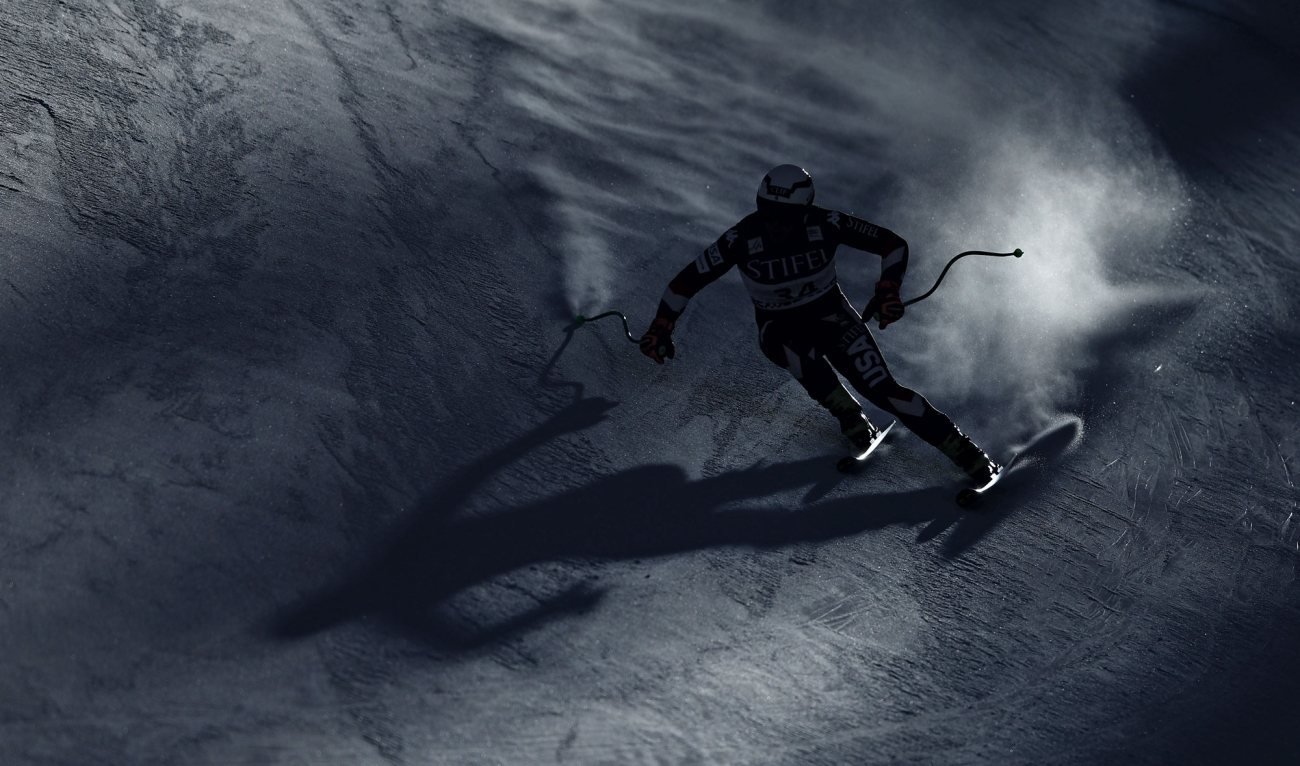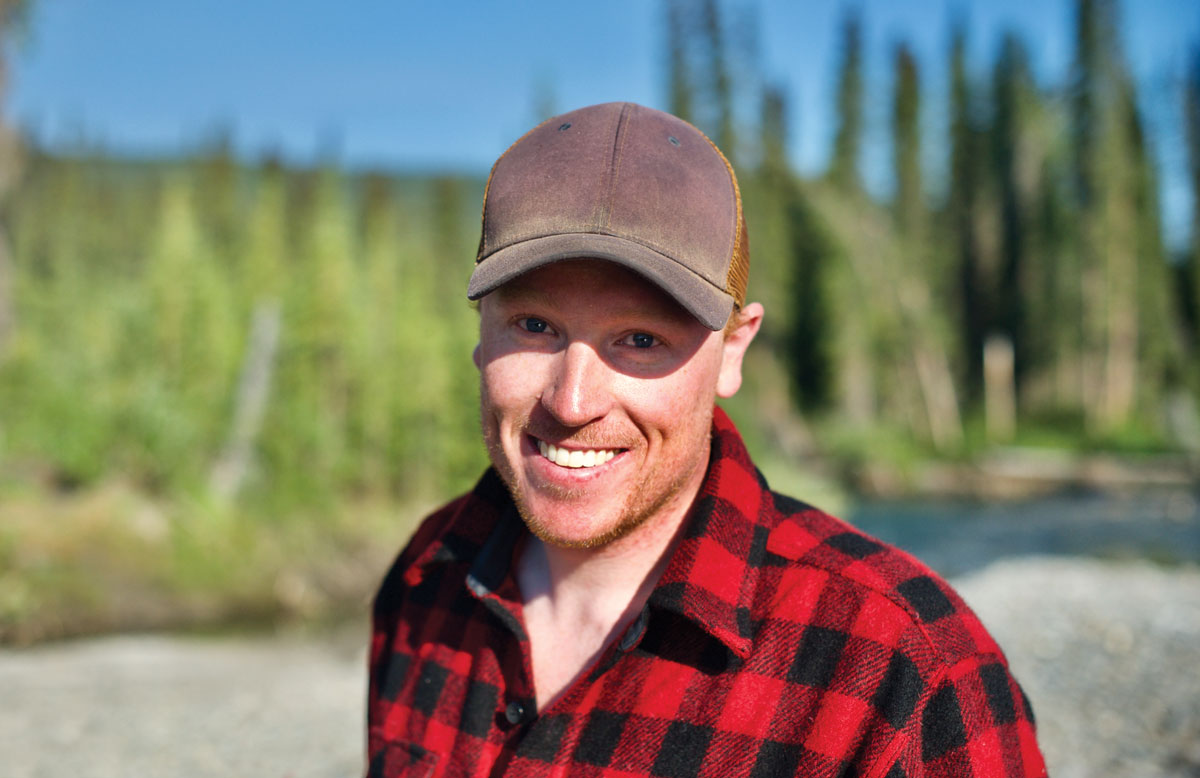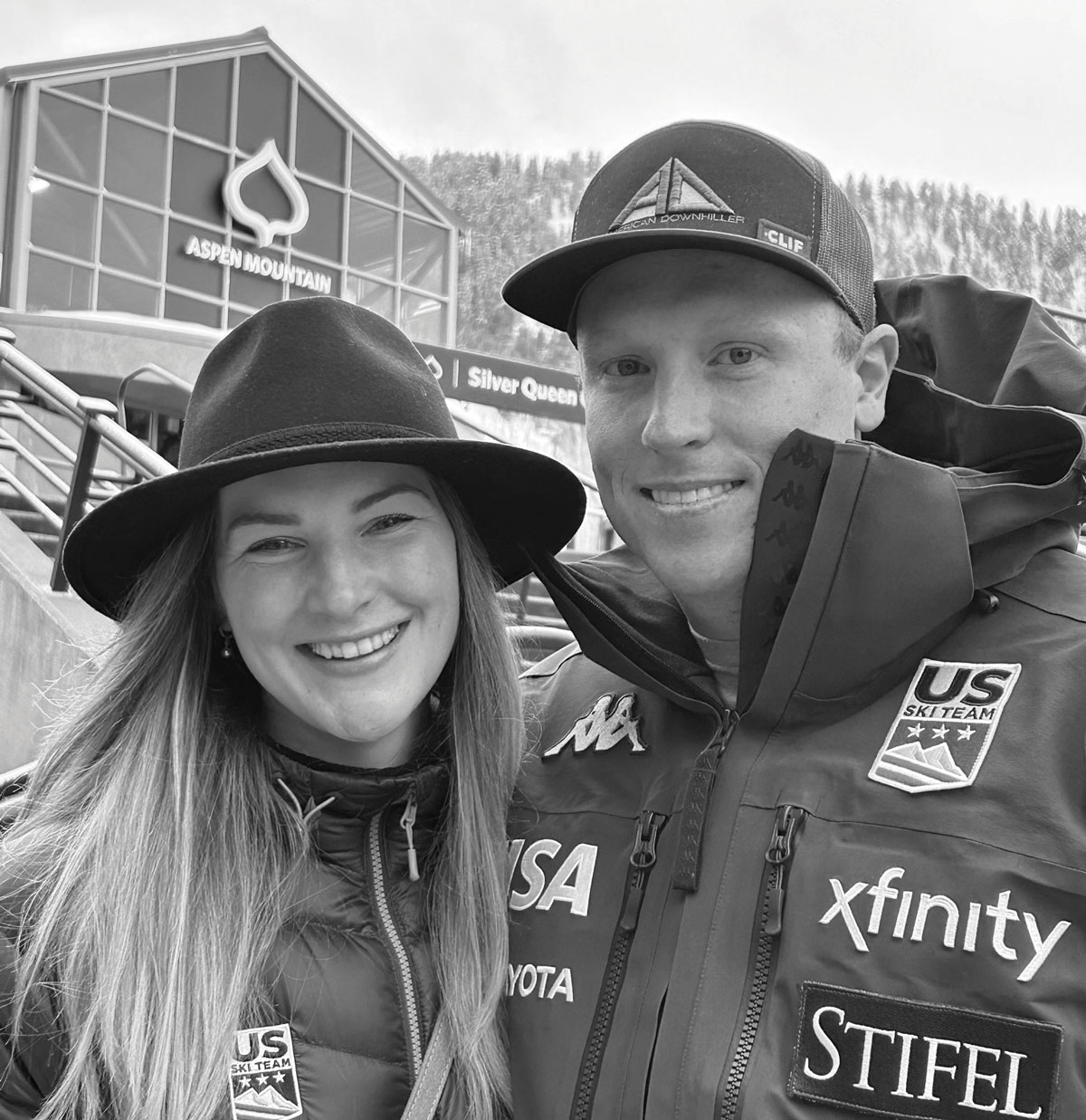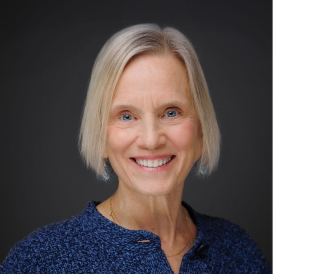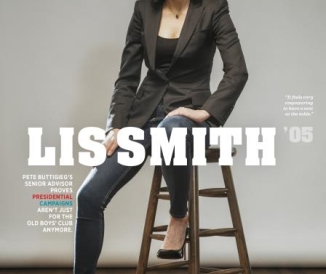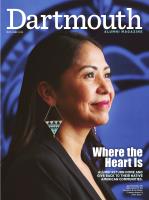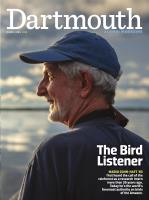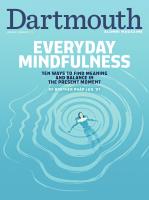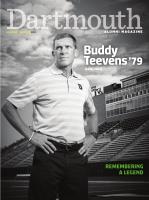The Long Haul
Moose Morse is no typical Dartmouth junior. It’s not even clear that he is a junior. He started college in 2016, but he didn’t begin his second term until spring 2018, and his third term in 2020. Today, as his original classmates start thinking about their fifth reunion, Morse, 27, continues his slow trek toward an engineering degree. He doesn’t expect to graduate until 2029, thanks to his 13-year college plan.
The downhill specialist, ranked 33rd in the world, rarely thought about fluid mechanics or vector-field theory last fall, when he was in Austria training for the World Cup ski season. “You wake up at 5 a.m., on the ski lift at 6,” he says. “Train all morning, come down for lunch, then an afternoon workout. Watch a video, have dinner, then a team meeting, work on your skis, go to bed. Tomorrow, rinse and repeat.” Dartmouth’s D-Plan, the curricular road map that provides flexibility for students to customize their academic calendar, has made Morse’s unorthodox path through college possible. His D-Plan is a patchwork of campus interludes woven around far-flung athletic events that allows him to navigate his education in slow motion as he pursues alpine glory.
Aside from his freshman fall and one summer, Morse has attended only spring terms at Dartmouth. Every March, when World Cup competition ends, he migrates back to Hanover. “I go till the beginning of June, and then I’m back on the road, skiing and training again,” he says. Slowly but steadily, the pieces of his education have fallen into place. “I’m six terms in, so I’m basically halfway through my 13-year plan.”
Undergraduates typically use their D-Plan to facilitate off terms for an internship or course of study abroad, with about 85 percent earning their degree within four years and most others within six years. “D-Plans beyond six years are rare,” says registrar Eric Parsons. “Anything beyond 10 years is almost exclusively for a skier.”
Andrew Weibrecht ’09, a two-time Olympic medalist in super-G, matriculated in the fall of 2005 and didn’t graduate until 2019—by which time he had married, started a business, fathered a child, retired from the U.S. Ski Team, and spent a year as an assistant coach at Dartmouth. “I’m very grateful for the flexibility Dartmouth allowed,” Weibrecht says. “The opportunity to engage in academics while I was actively racing elevated both my school and athletic experience.”
The flexibility of the D-Plan offers a win-win arrangement that affords elite skiers a Dartmouth education while helping the College extend the tradition of having had at least one Big Green skier compete in every winter Olympics in the modern era. Although Morse hasn’t raced for Dartmouth, other elite skiers do—including Nordic star John Steel Hagenbuch ’25 and slalom specialist Allie Resnick ’25, both NCAA All-Americans. “Even if they don’t compete for us, it’s phenomenal to have those top-level athletes here,” says Cami Thompson, director of skiing. “It makes a big difference to the fitness and the confidence of our current athletes.” Morse stays in touch with College skiers but doesn’t train with the team.
Experiencing college in such a drawn-out manner presents special challenges. Doug Van Citters ’99, associate professor of engineering and associate dean of undergraduate education, points out that when a student takes classes only in the spring, it can complicate their ability to take required courses for a major. Van Citters worked with a physics professor to make sure Morse could get one such required credit. “It took some jumping through hoops, but we figured it out,” says Van Citters.
The lack of continuity creates other problems. “Other students, if they took a sequential course for math or French last term, well, I took it maybe two years ago, and I don’t remember a lot of the stuff,” says Morse. Then there’s the social aspect. Each 10-week spring term, Morse feels like a first-year student all over again. “It’s tough, walking into the dining hall, not knowing anybody,” he says. “It helps that I’m an extrovert.”
Morse is modest about his academic accomplishments. “You have a lot of really bright people at Dartmouth, and I wouldn’t say I always bring up the median,” he laughs. Not so, according to Ryan Chapman, who taught Morse in Introduction to Engineering. (Chapman now teaches at the University of Rhode Island.) “Moose shows a lot of passion as a student. He’s a deeply curious kid.” For their final project, Morse and two classmates tackled the problem of how rock-climbing ropes get dirty and break down over time. “They built a mechanism that passes the rope through this little rig and cleans it, even as you are climbing,” Chapman recalls. “It wasn’t just a cool project, but a viable product.” In his view, dealing with the complex mechanics of skiing while going 90 m.p.h. down a mountainside gives Morse a measured approach to solving problems—and an unusual poise. “Moose is always calm and cool,” Chapman says.
Entering college at 20 and emerging at 33 does create a Rip Van Winkle effect. “It’s pretty funny sometimes,” Morse says. “I walked into a lab last spring for physics, and one of the students assumed that I was the TA.” In 2022 he married Mackenzie St. Onge ’17, and he regards age and the experience that comes with it as a seldom-noted aspect of campus diversity. “I’ve seen the world. I’ve gotten married. I’ve bought a house. There’s a lot of other life boxes that I’ve checked, and it’s cool to go back to the classroom and add that perspective,” he says.
Morse and his wife own a condo in Park City, Utah, but Morse spends roughly 300 days a year on the road. He joined the U.S. Ski Team at 17, and after a decade of up-and-down results he had his best season last year, winning the U.S. Nationals in downhill and getting his first top-10 finish in a World Cup event. “It takes a long time to improve your ranking,” he says. “Race by race you keep working it down.”
Morse and his brother, Ben ’14, grew up at the foot of Sugarloaf Mountain in Maine, where their parents, both ordained ministers and avid skiers, serve as “skiing pastors” for Sugarloaf Area Christian Ministry. “We all take a run together and stop periodically to do different parts of a church service,” Morse explains. “The idea is to bring church out into God’s creation for everyone to enjoy.” Even as he maintains his focus on skiing, Morse keeps the bigger picture in view. “Part of my success in my sport has been trying to be someone who is on this earth to try to make the world a better place, regardless of how many medals I win.” Three years ago he cofounded the Sam Morse FAST Camp—Faith And Ski Training—a Christian ski racing camp in Oregon for teenagers. “We have on-hill ski training, and in the afternoons we have a devotional Bible study and other youth-group-style stuff,” he says. “It’s been a really cool project.”
Once his racing days are over, Morse hopes to bring his mechanical engineering training to the ski industry, possibly for a lift manufacturer or groomer company. Meanwhile, the students he’ll eventually graduate with in 2029 are now sophomores—in high school. Morse views this with the good cheer of a perpetual glass-half-full guy. “Getting to ski 150 days a year is pretty awesome,” he says. “Skiing is this wild phenomenon where you’re on two little boards flying down a sheet of crystallized water with enough gradient that it creates this sensation of falling-slash-flying that I have never found anywhere else.”
Rand Richards Cooper is a freelance writer from Connecticut.

